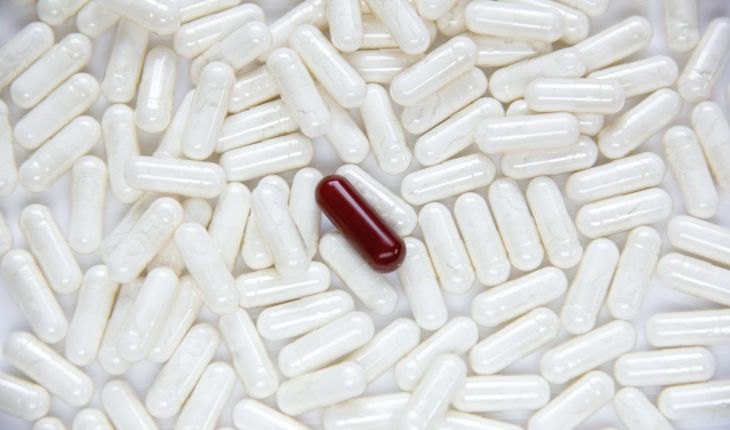Biosimilars Explained: India Emerging Role in Innovation
- Sophia Grace
- Aug 1, 2025
- 4 min read

Biological drugs have transformed modern medicine—but with innovation came high costs. Enter biosimilars—scientifically advanced alternatives to expensive biologics that promise similar safety, purity, and potency. As the demand for affordable treatment options continues to surge, biosimilars are redefining how healthcare systems manage chronic and life-threatening conditions like cancer, diabetes, rheumatoid arthritis, and more.
Biosimilars aren’t just generic versions of biologics—they’re complex, high-precision therapies produced from living cells and developed after the original product’s patent expires. They follow rigorous regulatory standards to ensure they’re as effective and safe as their reference biologics. With more physicians, patients, and healthcare institutions embracing these alternatives, biosimilars are rapidly becoming the cornerstone of value-driven healthcare.
India Biosimilar Insights by Expert Market Research
According to Expert Market Research, the growing demand for cost-effective healthcare solutions has accelerated the development and use of biosimilars in emerging economies. India biosimilar Market production, in particular, stands out due to its robust pharmaceutical infrastructure, skilled workforce, and strong regulatory support. As domestic manufacturers scale innovation to meet international quality standards, India is fast becoming a hub for biosimilar development, catering to local needs and global therapeutic demand.
What Makes Biosimilars Different from Generics?
While generics are chemically synthesized and identical to their reference drugs, biosimilars are developed from living organisms, which makes them similar but not identical to their originator biologics. This difference requires advanced technology, extensive clinical testing, and thorough regulatory approvals. Despite these complexities, the core promise of biosimilars remains the same—improving access to life-saving medicines at a lower cost without compromising on efficacy.
Regulatory bodies like the U.S. FDA and EMA have established stringent approval pathways for biosimilars, ensuring that these alternatives are just as safe and effective as the original drugs. This has opened doors for biosimilars to be used confidently across major therapy areas including oncology, nephrology, and autoimmune diseases.
India’s Rise as a Biosimilar Powerhouse
India has firmly positioned itself as a pioneer in biosimilar research and development. With over 100 biosimilars approved by the Central Drugs Standard Control Organization (CDSCO), India offers a unique blend of affordability, innovation, and skilled biotechnological talent.
Indian pharmaceutical companies are investing heavily in advanced biologics facilities and forming global partnerships to gain regulatory approvals in international markets. The government has also introduced favorable policies to promote biosimilar exports, paving the way for India’s deeper integration into global healthcare supply chains.
Moreover, with the increasing burden of non-communicable diseases in the country, biosimilars offer a viable solution to meet therapeutic needs at scale. Their affordability also helps address the socio-economic barriers to treatment adherence in rural and underprivileged populations.
Why Biosimilars Matter for Patients and Healthcare Providers
The rise of biosimilars brings a win-win opportunity for both patients and providers. For patients, they offer enhanced access to high-cost biologic treatments that would otherwise be unaffordable. For healthcare systems, biosimilars help reduce spending and allow resources to be reallocated to other critical areas.
Biosimilars are also key to tackling drug shortages. By diversifying the sources of biologic therapies, biosimilars mitigate the risk of supply disruption and offer flexibility in healthcare delivery.
Additionally, the competition brought by biosimilars helps drive innovation and lowers the price of originator drugs, creating a more sustainable healthcare economy.
Regional Biosimilar Adoption: A Snapshot
Across North America and Europe, biosimilar adoption has gained significant momentum, especially in the oncology and immunology sectors. Countries with established healthcare reimbursement frameworks and supportive physician education programs have seen rapid biosimilar uptake.
In Asia, apart from India, nations like South Korea and China are advancing biosimilar pipelines through aggressive R&D investment and strategic collaborations. Meanwhile, Middle Eastern and Latin American countries are slowly integrating biosimilars into public healthcare policies, especially for chronic illness management.
Each region presents its own set of challenges—from regulatory clarity to physician skepticism—but the growing volume of clinical evidence and success stories is slowly shifting perceptions worldwide
Challenges in the Biosimilar Journey
Despite their promise, biosimilars face a few obstacles. One of the main challenges is awareness. Both healthcare providers and patients may hesitate to switch from a reference biologic to a biosimilar due to misconceptions about efficacy or safety. Regulatory complexity is another hurdle, as each country has different approval guidelines, making global market entry more time-consuming.
Then there’s the issue of interchangeability—whether a biosimilar can be substituted for the reference product without physician intervention. While some countries have clear rules around this, others remain vague, limiting widespread adoption.
Additionally, manufacturing biosimilars is no easy task. It involves intricate bioprocessing steps, stringent quality control, and significant investment. Any minor change in the production environment can impact the final product, making consistency a top priority.
Looking Ahead: The Biosimilar Future
The horizon for biosimilars looks exceptionally promising. As technology matures and trust deepens, these biologic alternatives will continue to disrupt the healthcare landscape. Personalized medicine, artificial intelligence in drug design, and better understanding of disease biology will further fuel biosimilar evolution.
Countries like India will remain pivotal in making high-quality biosimilars accessible to a broader population. With expanding manufacturing capabilities and increasing global recognition, India is poised to lead not just in quantity, but in quality and affordability as well.
From being seen as secondary choices to becoming first-line treatments in many cases, biosimilars are rewriting the script of healthcare access and affordability. And in a world where every dollar and every dose matters, that’s a change worth celebrating.









Comments